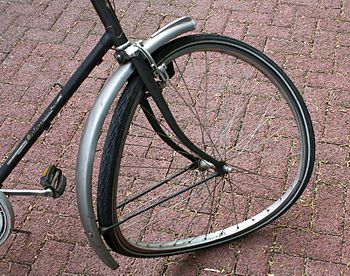I was packing for a trip with the TV on in the background. Instead of heading to bed early so I could be fresh for my trip, I stayed up to jot some thoughts about a bike accident.
Were there flames, fatalities or drama? On the surface there was nothing unusual about the incident. Or so it seemed at first. A young boy was riding his bike, hit a pothole, fell off and broke his wrist. He had a bike accident and his Mom is suing the city.
[Tweet “Were there flames, fatalities or drama?”]
When asked why the city should be held responsible she replied “Hellooooo.” That was the entire comment.
Of course I feel for any child with a broken bone — it hurts. It’s unfortunate. And I understand parents feeling angry when children suffer: those feelings are normal and natural. And of course cities and towns should to their best to make necessary road repairs.
Kids fall off of bicycles and get hurt. It happens: neither riding a bike nor conquering gravity are particularly easy skills to master. But a broken wrist in not a fatality. Painful? Inconvenient? Scary? Sure — so are lots of opportunities for growth.
Intended or not, actions have consequences — even driving our bikes in unexpected directions.
Have you ever been frustrated by making repeated requests about basic chores or responsibilities? Laundry that doesn’t make it to the hamper? Book bags that don’t get cleaned out? Toys that aren’t put away?
At that point some parents are able to let certain laundry go undone, permission slips unsigned and toys “‘go missing.” It’s generally an effective way to stop nagging and help kids connect the dots between the request and the consequence of not following through.
However there parents who offer to serve detention for their kids and even one who drove the get-away car for her “baby’s” robbery… sometimes parental love gets in the way of more rational thinking!
[Tweet “Sometimes parental love gets in the way of more rational thinking!”]
##
P.S. I think extreme examples can be useful in checking our own decisions so I’ve got a collection of old news articles here. They’ve sparked some lively conversations in parenting groups. (And, please, if you’ve got one to add, send me the link! I love this crazy collection.)


![Bad break [Apr 22] Bad break [Apr 22]](https://www.wknts.com/wp-content/uploads/2014/08/2438840018_035238602a.jpg)